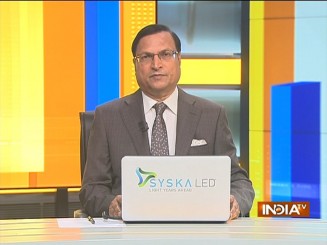 The Samyukta Kisan Morcha finally called off its year-long farmers’ agitation after receiving a letter from the Centre accepting most of its demands on Thursday. This is good news for people living in Delhi and for those who cross the capital’s border points daily. Farmers will start removing their tents and other structures from national highways from Saturday, while Delhi Police will remove all barricades.
The Samyukta Kisan Morcha finally called off its year-long farmers’ agitation after receiving a letter from the Centre accepting most of its demands on Thursday. This is good news for people living in Delhi and for those who cross the capital’s border points daily. Farmers will start removing their tents and other structures from national highways from Saturday, while Delhi Police will remove all barricades.
After remaining closed for a year, the six border points of Delhi at Ghazipur, Tikri and other places will now be open for public. National Highway Authority of India officials said, it may take some time for the highways to be opened for traffic.All toll plazas occupied by farmers in Punjab, Haryana and Rajasthan will also be cleared by December 15. On Thursday, many famrers started dismantling their tents and brought down iron structures that stood at the protest site in Singhu, Tikri and UP Gate.
At the main protest site, farmers started celebrating after the SKM announced its decision to “suspend” the agitation that began 378 days ago. It said, the leaders would meet again on January 15 to check whether the Centre has fulfilled its promises to implement their demands. The leaders said, they would resume the agitation if the promises were not implemented.
The farmer leaders claimed they have won a big victory by forcing the government to accept their demands. The letter from the Centre has been signed by Sanjay Agarwal, secretary, agriculture ministry. The letter says, a committee including SKM representatives will be set up to formulate a legislation to give guarantee for minimum support prices. It also said, Punjab, Haryana, UP, Uttarakhand governments have agreed to give compensation to families of farmers who died during the agitation. It also noted that state governments have promised to withdraw all cases filed against the farmers. The electricity amendment bill will be brought in Parliament, after consultations with farmer leaders. It also says, farmers will be cleared from criminal liability in cases of paddy stubble burning. These were the main demands of farmer leaders which have been accepted in writing by the Centre.
Farmer leader Gurnam Singh Chadhuni threatened that if the government backed out from implementing its promises, farmers would return again to resume their agitation. Another farmer leader Ashok Dhawale said, there were still some more issues awaiting, like debt waiver, crop insurance, and land belonging to tribals. From their reactions, it was clear that Left-oriented farmer leaders and BKU chief Rakesh Tikait were unwilling to suspend the agitation. While the SKM formally said it stayed united, the dissensions were evident soon after the announcement. Farmer leader Chadhuni said he would form a new party and contest the Punjab elections by fielding candidates. He was saying this minutes after the SKM leaders promised that none of the farmer leaders would contest elections. Two farmer leaders Shiv Kumar Sharma ‘Kakka’ and Dr. Darshan Pal said, any SKM leader contesting elections will have to leave the front.
Now that the agitation is over, let us recapitulate. The farmer leaders claimed that they were returning victorious after forcing “an arrogant dictator”(ahankari dictator) to bend. A dictator never apologizes for not being able to convince the farmers. An arrogant leader is one who never concedes. An arrogant leader is one who never bothers about his image among the people. A dictator is one who crushes dissent and protests by using bullets and brute force. In the year-long farmer agitation, police never used lathis or bullets on farmers. Conversely, we saw images on Republic Day, when policemen fell from the Red Fort ramparts into a ditch when threatened by a mob. People at that time asked why the police did not respond.
Now that the agitation is over, farmer leaders should think with an open mind who is an arrogant and who is a dictator. They should realize what they had sought, and what they received from the government, in return. They should also realize whether fulfilment of their demands will indeed help the interests of farmers, or the farm bills that they rejected would have helped the future of famers. Farmer leaders should introspect: Who ultimately benefited from the agitation that led to repeal of farm bills?